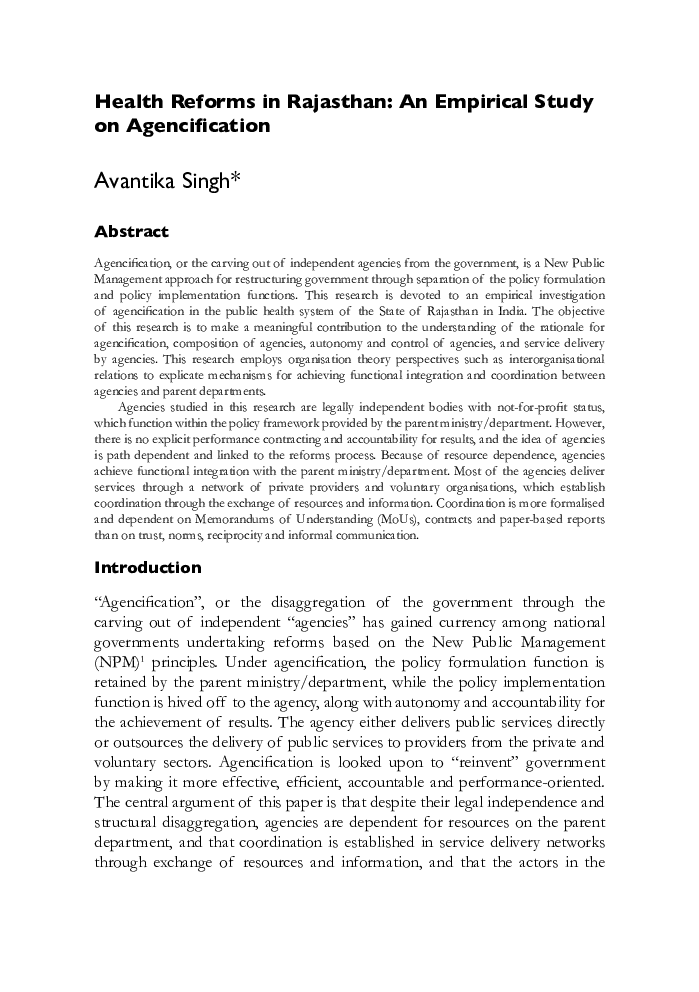| Article ID | Journal | Published Year | Pages | File Type |
|---|---|---|---|---|
| 1061782 | Policy and Society | 2007 | 22 Pages |
Agencification, or the carving out of independent agencies from the government, is a New Public Management approach for restructuring government through separation of the policy formulation and policy implementation functions. This research is devoted to an empirical investigation of agencification in the public health system of the State of Rajasthan in India. The objective of this research is to make a meaningful contribution to the understanding of the rationale for agencification, composition of agencies, autonomy and control of agencies, and service delivery by agencies. This research employs organisation theory perspectives such as interorganisational relations to explicate mechanisms for achieving functional integration and coordination between agencies and parent departments.Agencies studied in this research are legally independent bodies with not-for-profit status, which function within the policy framework provided by the parent ministry/department. However, there is no explicit performance contracting and accountability for results, and the idea of agencies is path dependent and linked to the reforms process. Because of resource dependence, agencies achieve functional integration with the parent ministry/department. Most of the agencies deliver services through a network of private providers and voluntary organisations, which establish coordination through the exchange of resources and information. Coordination is more formalised and dependent on Memorandums of Understanding (MoUs), contracts and paper-based reports than on trust, norms, reciprocity and informal communication.
